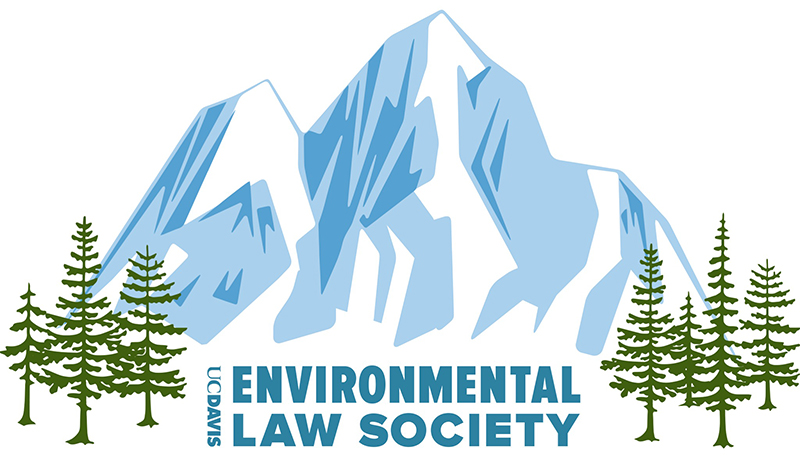8:30-9:00a.m.
Breakfast and Check-In
9:00-9:45a.m.
Keynote & Opening: The Role of Law and Science in Environmental Decision Making in California
Mike Sutton
Chair, Ocean Champions & COMPASS
Summer Faculty, Vermont Law School
9:55-11:10a.m.
Panel 1: Planning for California's Future Coastline
With sea levels projected to rise up to five and a half feet along California by the end of this century, coastal communities are grappling with the physical and legal challenges accompanying coastal erosion and rising tides. This panel will discuss the impact of the public trust doctrine and takings law on properties facing shifting coastlines. It will also delve into the legal (permitting, enforcement) implications of the 2015 California Coastal Commission's Sea Level Rise Policy Guidance document, such as are playing out in Lynch v. Cal. Coastal Comm'n. The panelists will also discuss legal, scientific, and economic considerations coastal management authorities are considering in their planning efforts in order to be compliant with the Coastal Act and meet shifting conditions at the coast.
Panelists:
Megan Herzog, Emmett/Frankel Fellow in Environmental Law and Policy, UCLA School of Law
Kelsey Ducklow, Climate Change Analyst, California Coastal Commission
Sarah Newkirk, Attorney and Coastal Program Director, The Nature Conservancy
Dr. Phil King, Economics Department, San Francisco State University
Moderator: Victoria Bogdan Tejeda, UC Davis School of Law (‘17)
11:10-11:20a.m. Morning Break
11:20a.m.-12:35p.m.
Panel 2: Adaptive Management for Marine and Anadromous Fish
Marine and anadromous fish (such as salmon) are facing pressures from overfishing, climate change, and out-of-date management strategies. This panel will discuss revisions to California's Marine Life Management Act, implications of the Endangered Species Act in fisheries management, and approaches to ecosystem-based management throughout the state.
Panelists:
Joe Milton, Senior Counsel, California Department of Fish and Wildlife
Nate Mantua, Landscape Ecology Leader, NOAA
Steve Mashuda, Managing Attorney, Earthjustice
Moderator: Mike Weber, Resources Legacy Fund
12:35-1:20p.m. Lunch
1:20-2:35p.m.
Panel 3: Managing Water Quality for an Acidifying Ocean
With increasing acidity of the ocean resulting from the ocean absorbing increased carbon from the atmosphere, ocean acidification has rapidly emerged as a significant problem for individual organisms, coastal ecosystems, and the human communities that rely on these resources. This panel will discuss the West Coast Ocean Acidification and Hypoxia Science Panel's recent findings concerning local and regional opportunities and solutions to address ocean acidification and hypoxic events, legal opportunities to improve state water quality criteria under section 303 of the Clean Water Act, the implications of the 2015 United States District Court decision Center for Biological Diversity v. U.S. EPA on pH monitoring requirements, and the current monitoring practices and capabilities to address this difficult water quality issue.
Panelists:
Dr. John Largier, UC Davis Bodega Marine Laboratory & West Coast Acidification and Hypoxia Science Panel
Emily Jeffers, Staff Attorney, Center for Biological Diversity
Arie Bickel, Program Manager, Central and Northern CA Ocean Observing System (CeNCOOS)
Jennifer Phillips, Program Manager, CA Ocean Protection Council
Moderator: Kaitlyn Kalua, UC Davis School of Law (‘16)
2:35-2:45p.m. Afternoon Break
2:45-4:00p.m.
Panel 4: The Role of Traditional Ecological Knowledge in Coastal Management Decisions
Ocean and coastal resources are not confined to a single jurisdiction, causing complexity in the various levels of governance and authority to manage activities and resources along the California coastline. Traditional ecological knowledge has the potential to play a central role in integrating multiple perspectives in cross-jurisdictional resource management and informing coastal resource decisions throughout California. This panel will explore the value and challenges in incorporating traditional ecological knowledge in environmental management decisions by looking at two specific case studies from the InterTribal Sinkyone Wilderness Council and the Tolowa Dee-ni’ Nation, their involvement in California’s Marine Protection Areas, the West Coast Marine Planning Tribal Coalition and West Coast Regional Planning Body, and how tribal consultation requirements under California statutes AB 52 and SB 18 can play a critical role in coastal management decisions.
Panelists:
Briannon Fraley, Self-Governance Director, Tolowa Dee-ni' Nation
Cheyenne Sanders, Associate General Counsel, Yurok Tribe
John Hansen, West Coast Regional Planning Body Coordinator
Darcie Houck, Partner, Fredericks Peebles & Morgan LLP
Moderator: Dr. Beth Rose Middleton, UC Davis Department of Native American Studies Yoch Dehe Endowed Chair in California Indian Studies
4:00-4:10p.m. Closing Remarks
4:30-5:30p.m. Reception
